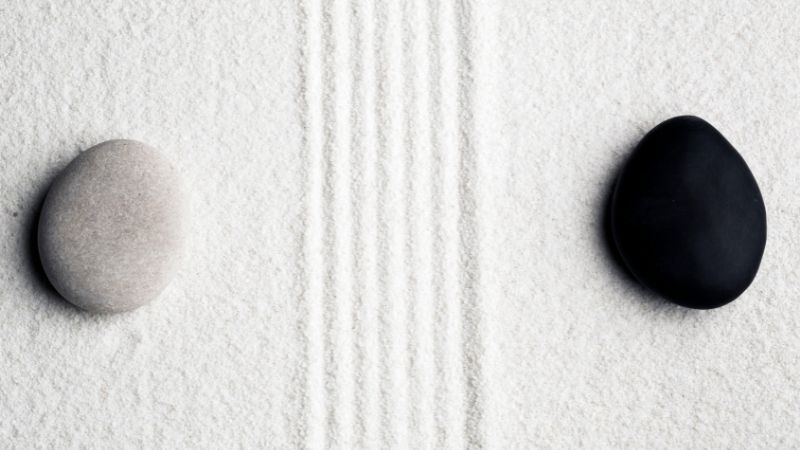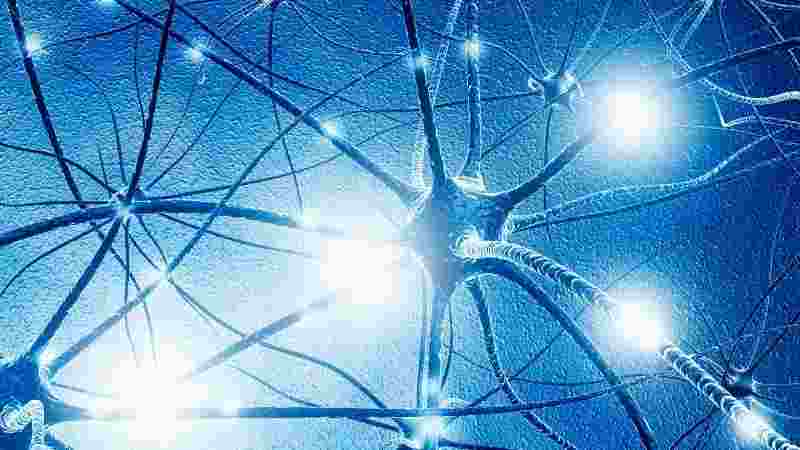READ TIME: 18m
DR JOHN DEMARTINI - Updated 3 years ago
Look at your behavior, do you prefer at almost any cost to avoid criticism?
When you perceive you have been criticized, do you run through it repeatedly in your head while experiencing feelings of anger or shame?
Do you avoid individuals you perceive will criticize you or situations where you perceive you’ll attract criticism? Do you do this as a form of self-protection?
Do you feel anxious at the thought of someone criticizing you?
Does any perceived criticism result in you feeling ‘less than’ and that there is something wrong with you?
It may then surprise you to know that criticism serves an important function and has a purpose.
In fact, criticism is a gift that can help you grow and become more authentic if you embrace the purpose it has in your life.
In all likelihood, you have met someone who was sheltered and possibly even overprotected as a child. They likely became spectators in life who were dependent on others, who lacked resilience and were part of the crowd instead of leaders of the crowd.
You can likely think of someone who experienced more challenges and learned how to overcome them and tackle any obstacles that came their way. They may have become entrepreneurs or leaders, independent thinkers, and someone more likely to stand out from the crowd instead of blending in.
Click below for the video of this article. ↓
Here’s why I believe that criticism or challenge is essential for growth to occur:
When someone challenges you or criticizes you, it can make you more precociously independent. That means that you can mature and become independent and accountable more quickly.
When someone over supports you, it can slow down that process and make you more juvenilely dependent.
You can often see this in families where there is a very supportive mother who does everything she can for her children, which keeps them dependent, and a stricter father who tells his children to figure it out, do their chores and become more independent.
Those roles can be reversed, and individuals can play anywhere between the two extremes, but it’s often most visible when the two roles are highly polarized.
Essentially, if you give someone whatever they want, whenever they want it, make life easy for them, and do whatever you can to prevent them from experiencing difficulties, you tend to prevent them from growing and becoming self-reliant or independent.
They can become juvenilely dependent and lack the executive function skills to help them grow, lead, thrive, create, innovate, and live the extraordinary life they were possibly born to live.
Most individuals don’t realize this, but you have two areas of your brain:
-
Executive center in the forebrain
Whenever you’re living by your highest values, the blood, glucose, and oxygen go into the forebrain and activate the executive center, where you’re more objective and where you more equally embrace support and challenge, praise and criticism.
When you’re doing something high on your values and stick to priority tasks for the day, you can handle almost anything. You’re highly resilient, have your heart rate variability goes up, are not lateralized and polarized in your autonomic responses, are more resilient and adaptable, and experience the most growth.
It’s been shown in biology and evolution that maximum growth and development occur at the border of support and challenge, order and chaos, nice and mean, kind and cruel.
Individuals have both sides: nice, mean, kind, cruel, positive, negative, support, challenge, peace, war, praise, reprimand, punishment and reward, et cetera.
If someone perceives that they are experiencing one supportive side without the other compensating challenging half, they tend not to grow as much. However, when they perceive both sides, they maximize their growth.
Imagine if the thing that supports you represents PREY, and the thing that challenges you represents PREDATOR, which it does in the brain.
If you are the prey without a predator, you’ll tend to overeat, be gluttonous and lose fitness.
If you are the predator without prey, you’ll tend to emaciate, not eat, be starved, and lose fitness.
But if you have a perfect balance of praise and reprimand, support and challenge, prey and predator, similarities and differences, you experience maximum growth.
In fact, you have maximum growth at that border because that’s the definition of love. Love is a growth factor in life.

Love is a synthesis and synchronicity of complementary opposites. And you grow most when you realize both simultaneously. Your brain is designed to receive and handle both praise and reprimand, support and challenge. As such, you live in an ecosystem that gives you that.
For example, if you have an overprotective mother, you’ll tend to have a father who promotes more independence or a sibling that beats you up.
Your life is made up of pairs of opposites. In fact, the individuals addicted to praise, support, and protection are usually the individuals that others pick on or who get targeted by bullies.
However, when you embrace both sides equally, you maximize your growth because you will get both.
-
Primitive reactive amygdala in the hindbrain
When you attempt to live in your lower values, you bring blood, glucose, and oxygen into the amygdala. The more primitive amygdala will want you to avoid predator and seek prey, avoid challenge and seek ease and support, and avoid criticism and seek praise.
Individuals who live in their amygdala are vulnerable to being hurt by criticism and addicted to praise. The addiction to praise makes them juvenilely dependent, while the individuals who embrace criticism are set free to be their authentic selves.
This is something I teach in my 2-day signature program, the Breakthrough Experience when I shatter the myth around the idea that it is ideal to have praise without reprimand.
You need both if you would love to grow, thrive, lead, and learn to master your life.
During the Breakthrough Experience, I ask you to go to a moment where and when you perceive an individual criticizing you. I ask you to think about where you are, what the other individual is doing, and the content and the context of that criticism.
I then ask you to get present and think about how, to be criticized, you’re likely to be doing two things:
- You’re likely doing something that they perceive is challenging their values.
- You’re likely inflated, overconfident, and above equilibrium and need to be brought down into authenticity. This is usually because someone has praised you, and you felt good about it and puffed yourself up. And that’s not who you are. That’s not the authentic you. As such, you attract the criticizer to bring you back into balance and authenticity.
The benefit of criticism
I’m going to make a statement that may be shocking to you: criticism is designed to teach you to communicate respectfully in other individuals’ values and to humble the self-importance that occurs when you’re addicted to praise.
As such, criticism serves you and is a gift to guide you back to your authentic self.
You may have seen this take place in your own life or the lives of those around you.
You’ll attract a criticizer to bring you back into authenticity if you’re proud and puffed up because you have been praised. If you’re criticized and feel shame, you attract supporters to praise you and lift you up.
When you’re cocky, you attract tragedy, and when you’re humble, you attract comedy.
One is to knock you down, pride before the fall, and the other is humility before you rise again.
Everything that’s going on in your life is trying to get you to be authentic. It’s a feedback mechanism.

I mentioned earlier that the amygdala wants to avoid the predator and seek the prey, avoid the challenge and seek the support, avoid the criticism and seek the praise. So, as long as you’re addicted to praise, you will experience criticism to break the addiction and associate the two simultaneously.
To recap what has been covered so far:
- If you are addicted to praise, criticism hurts.
- If you’re not addicted to praise and understand the purpose of criticism, you will not be hurt by it. Instead, you will appreciate it because it helps you become authentic. It gives you feedback about communicating effectively in other individuals’ values.
Suppose I walk into a room, and you immediately begin praising me and telling me how wonderful I am.
If I were to respond with humility, you would tend to keep praising me.
However, if I were to agree with you and respond by telling you how magnificent I am, and how I am even more magnificent than you can even comprehend arrogantly - you would likely begin criticizing me.
It’s something I have demonstrated thousands of times in some of my seminars – it happens every time.
Every human being has an image that they perceive of you. Anytime you exceed it by being puffed up, they’ll put you down. Anytime you go below it, they’ll lift you up.
If you’re humble and ask questions during the selling process, you will likely get more sales. However, if you go in there and presume you know what they need, they tend to cut you off and walk away from you because there’s a natural tendency to want to have equanimity and equity.
There’s a built-in homeostatic, intuitive system inside every human being to find fair, sustainable exchange, or equity and equanimity.
- So, anytime you are praised and get puffed up in pride, you simultaneously attract a criticizer.
- Anytime you’re criticized and feel down, you attract a supporter.
The over-protector attracts the bully, the over-supported attracts the challenger, the over-praised attracts the criticizer, and the over-criticized attracts the supporter or rescuer.
Nature constantly tries to get individuals into authenticity and so become aware of the pairs of opposites.
Let’s build on this a bit more and take it further.
Maximum growth, as I said, occurs at the border of support and challenge.
If you perceive challenge without support, you’re likely to perceive you’re in pain, want to avoid them, label them as ‘critical’, think their comments are negative, and feel down.
If you don’t take the time to look for the opposite, the praise and support, so you can balance the equation, you will likely store the criticism in your subconscious mind as baggage.
Your subconscious mind stores anything you perceive as criticism without praise or praise without criticism. It causes impulses for the addiction to praise and an instinct away from predator, the criticizer.
Instead, it is wise to become conscious of praise and criticism simultaneously.
Use the Demartini Method to build communication
How? Ask these two questions extracted from the executive function development exercise called the Demartini Method:
“At the exact moment when someone’s criticizing me, who’s praising me?” And
“At the exact moment when someone is praising me, who is criticizing me?”
Go inside and get present; think about where you were, when you were, what the content and context were, and your intuition will pop out who it is.
The praise may not be coming from someone right there in the room - they may be distant or virtual in your mind. But all praisers and criticizers are always simultaneously paired. It takes contrast to perceive.
You’re typically only conscious of one at a time unless you ask the questions above to help you become mindful of both.
If you see both, you realize that everything is trying to keep you authentic, not puffed up or deflated, but authentic. As such, you’ll tend to be grateful when you see the equal balance of both sides.
How will you be loved for who you are unless you are being who you are?
You’ll likely become puffed up, inflated, and proud if you receive support and praise, which is not who you are.
It’s a persona, a mask you’re wearing that’s puffed you up, so you become over-inflated and attract a criticizer to bring you down. Australians refer to this as the Tall Poppy Syndrome.
You’ll likely become beaten down and shamed if you receive criticism, which is also not who you are. You’ll then attract a supporter to bring you back up.
If you see them simultaneously, you will realize that there’s nothing but a loving act instead of reacting with emotional highs and lows. You may even experience a tear of gratitude when you realize, “Wow, I’m being led back into my authentic self.”

The criticizer is not an enemy. They’re someone who is helping you become authentic.
The praiser is simultaneously doing that too. You’re receiving punishment and reward simultaneously, challenge and support, criticism and praise.
The predator and the prey are always there because the food system needs both for maximum growth, which occurs at the border of the two. When you become conscious of both, you too get to grow maximally.
However, if you become addicted to praise, which keeps you juvenilely dependent, you don’t grow and instead, attract the criticizer to help you get back on track.
The criticizer is not the evil one. The criticizer is actively breaking your addiction to praise and helping you see both sides.
Just like the praiser is breaking your subdiction from the criticizer, to help you see both sides. They exist simultaneously as a pair.
Being conscious of both sides allows you to be fully conscious.
- When you resent someone criticizing you, you tend to be conscious of the downside and unconscious of the upside.
- When you’re being praised and are infatuated with them, you tend to be conscious of the upside and unconscious of the downside.
As long as you do not see both sides, you have an incomplete awareness or split in your psyche between the conscious and unconscious. This is what keeps you from being empowered, present and authentic.
Here are some action steps when you perceive that someone is criticizing you:
1. Stop and ask: Where did it happen? When did it happen? What was the content: what exactly are they saying? What’s the context: what’s it about?
Suppose, as an example, you are at work on a Monday morning, and someone criticizes what you are wearing.
A wise response is to go to the same moment and see where someone else is equally admiring you or is praising you for the way you dress.
It’s mind-blowing when they see the pair of opposites, balance it, and realize that there’s nothing to avoid or seek. Nature is simply keeping you authentic.
2. Look carefully at what you’re doing that may be challenging their values, or look at where you’re puffed up and somehow above equilibrium.
Then you’re more likely to see how they’re helping you get back into balance.
However, if you’re addicted to praise, you’re likely to be angry at them and want to avoid those individuals. But you can’t avoid them.
You’ve likely been trying to avoid criticism all your life, but you’ve still been getting it all your life.
You’re not here to avoid it. You’re here to understand it and use it wisely to be authentic and appreciate both sides of your life.
You’re not going to get rid of criticism in life because it’s essential.
The wise individuals, such as those striving to achieve a gold medal in sport or excel in their field, are hiring individuals to give them critique to help them master their lives.
In contrast, individuals who are not mastering their life are trying to avoid the very thing that the individuals who are mastering their life seek.
I always say that if you don’t fill your day with challenges that inspire you, it will fill up with challenges that don’t.
Fill your life with challenges that inspire you, and go out and fill your day with the highest priority actions. You’ll become more resilient and adaptable, mitigate risk, appreciate both sides, embrace pain and pleasure in the pursuit of purpose, and appreciate criticism and praise equally. They’re guiding you to your authentic self and greatest achievement. Maximum growth occurs there.
However, if you’re in your amygdala and not living congruently with your highest values, you’ll most likely want to avoid challenge, look for support, and avoid criticism and search for praise.
You’ll be addicted to one and subdicted from the other.
And when criticism does occur, you’re more likely to be distressed by it, angered, resentful, and even more polarized in trying to achieve a one-sided world. The more you polarize and try to achieve a one-sided world, the more futile your life becomes.
To sum up:
- When someone challenges you or criticizes you, it can make you more precociously independent. That means that you mature and become independent and accountable more quickly.
- When someone supports you, it can slow down that process and make you more juvenilely dependent.
- Criticism is designed to teach you to communicate respectfully in other individuals’ values and to humble the self-importance that occurs when you’re addicted to praise.
- Everything that’s going on in your life is trying to get you to be authentic. It’s a feedback mechanism.
- If you are addicted to praise, you’ll perceive that criticism hurts. If you’re not addicted to praise and understand the purpose of criticism, you will not be hurt by it. Instead, you will appreciate it because it helps you become authentic. It gives you feedback about communicating effectively in other individuals’ values.
- Every human being has an image that they perceive of you. Anytime you exceed it by being puffed up, they’ll put you down. Anytime you go below it, they’ll lift you.
- There’s a built-in homeostatic, intuitive system inside every human being to find fair, sustainable exchange and equanimity.
- It is wise to become conscious of praise and criticism simultaneously. How? The next time someone criticizes you, find the praiser, and the next time someone praises you, find the criticizer and see how that’s trying to get you to be authentic. You’ll empower your life.
- Look carefully at what you’re doing that may be challenging their values, or look at where you’re puffed up and somehow above equilibrium.
- The criticizer is not an enemy. They’re someone who is helping you become authentic.
Are you ready for the NEXT STEP?
If you’re seriously committed to your own growth, if you’re ready to make a change now and you’d love some help doing so, then click on the LIVE chat button bottom right of your screen and chat to us now.
Alternatively, you can book a FREE Discovery call with a member of the Demartini Team.
Interested in the Breakthrough Experience seminar?
If you’re ready to go inwards and do the work that will clear your blockages, clarify your vision and balance your mind, then you’ve found the perfect place to start with Dr Demartini at the Breakthrough Experience.
In 2 days you’ll learn how to solve any issue you are facing and reset the course of your life for greater achievement and fulfillment.
Click HERE to find out more
Important Notice:
The content shared in this blog is for education and personal development. It is not intended to diagnose, treat, cure, or prevent any psychological or medical conditions. The information and processes shared are for general educational purposes only and should not be considered a substitute for professional mental-health or medical advice. If you are experiencing acute distress or ongoing clinical concerns, please consult a licensed health-care provider.
Read full disclaimer HERE









